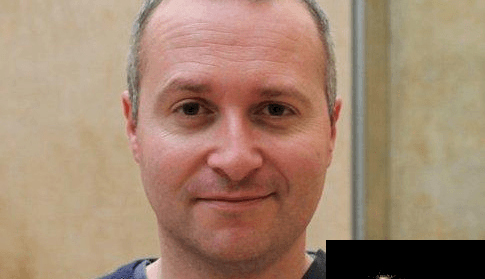Short Interview with Pete Wood, DesignSpark Community Manager
on

Pete has been working in the Electronics Industry for nearly 16 years in both distribution and OEM. He's been working for RS for the past 2 years as the DesignSpark Community Manager. He's a self-confessed geek and he is passionate about technology. He's a PC Gamer, mountain biker, born again surfer (sea waves not sine waves) and Raspberry Pi enthusiast, running the Oxford UK Raspberry Jam Meetup.
We had the chance to ask him a few questions about the growing electronics community and the way Internet has changed almost everything...
--
Jaime - How would you introduce the DesignSpark community and array of free tools to someone who doesn't know it, still hasn't try it or is "afraid" of it?
Pete - DesignSpark is a gateway to online resources and design support for engineers. We are about to celebrate our 3rd birthday and now have a community of over 130,000 members. DesignSpark is free to join and offers excellent free tools and design resources including our award winning PCB layout tool. We have some great content around industry leading technologies, a forum where you can engage with other members, and our new DesignShare section promotes open source and enables our community to share, collaborate in or download open source electronics projects.
J - Some breaking news for this year? Any remarkable new DesignSpark PCB feature you can unveil? No need to risk your neck :)
P - In October we will release version 6 of our PCB tool, look out for some great new features! We are also busy working on a new innovative design tool that will compliment DesignSpark PCB. We plan to launch in September, so "watch this space"!
J - Thanks to the new social functionalities, developers can stay in touch and ask other users. In your opinion, how is this changing the electronics community?
P - The internet has given us all access to social networks that allow us to engage with likeminded people all over the world. We are no longer limited to interacting with friends and colleagues; we can virtually meet new people and share and benefit from each other knowledge and skills.
J - With free development tools, open source hardware and software, and worldwide availability of most of the components, now we can say that electronics is becoming part of the pop culture. Revolution, or simply the way it should be?
P - I believe access to free development tools allows everyone the opportunity to start designing and get creative. I'm a great believer in sharing knowledge and removing as many barriers to entry as possible in our industry, especially for engineering students and those working in small to medium businesses. I do believe also in open source, why re-invent the wheel and waste hours of development time for a circuit design or a piece of generic code that engineers have already done countless times. The concept of sharing and collaborating helps us all and I believe helps technology evolve quicker.
J - What does the following sentence suggest to you? "Internet has changed the rules of the game."
P - When I started out in Electronics back in the late 1990's, the internet was still very new. As a sales guy I would take the latest datasheets and samples to customers as a unique selling point for the company. However, the introduction of the internet changed the way we all gain knowledge, giving us access to the world's knowledge from our fingertips. In the online world, knowledge is king!, so those offering the most current, most unique and relevant content to their target audience, will make them a more visible and valuable resource over their competitors.
J - When it started, some people in the industry saw open source as kind of an "evil" and catastrophic movement. Have most companies successfully adapted to this new way of thinking?
P - I think this is because the world of open source is often not really understood. There is a time and place for protecting your IP, it really depends on your business model. Even large corporations share and use open source material to their benefit, for example, helping manage technical resource or reduce their time to market.


Discussion (0 comments)